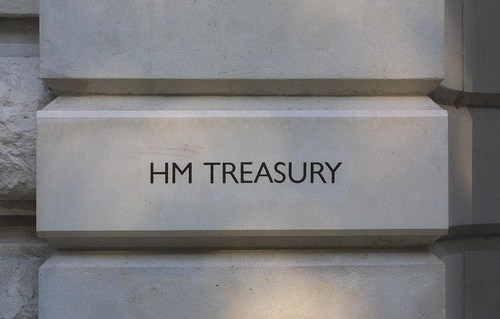
HMRC released its latest tax reciepts data this morning
HMRC collected inheritance tax (IHT) receipts of £3.1bn in the first four months of 2025/26, an increase of £229m (8%) compared to the same period in 2024/25 (£2.8bn).
The latest forecast from the Office for Budgetary Responsibility, published with the Spring Statement, predicts another expected record year for IHT this year.
IHT is predicted to generate £9.1 billion for the Treasury in 2025/26 and more than £14 billion by 2029/30.
The news comes as the government prepares to levy IHT on unused pensions from April 2027.
Stephen Lowe, director at Just Group, expects the Chancellor to explore more changes to IHT this autumn.
He said: “As the Chancellor continues to feel the fiscal pressure, she will want to explore all her options ahead of the Autumn Budget. It’s likely that inheritance tax will have the slide rule run over it once more.”
Ian Dyall, head of estate planning at wealth manager and Financial Planner Evelyn Partners, agrees that more changes are on the cards.
He said: “Monthly receipts data reliably shows how fiscal drag is bringing more wealth into the scope of IHT, but the numbers that really matter for wealthier households are those showing the overall state of the public finances, because that’s what prompted last year’s Budget overhaul of IHT rules, and it’s not unthinkable that the transfer of wealth will be on the table again at the next Budget.”
The area that he expects is most likely to see changes is the rules around gifting.
Rachael Griffin, tax and Financial Planning expert at Quilter, has concerns about a potential lifetime cap on tax-free gifts under IHT rules.
She said: “Such a cap would mark a fundamental shift in how families pass on wealth, potentially capturing not just strategic transfers but also routine support between generations. Tracking lifetime gifts would be administratively complex and could lead to unintended behavioural shifts, from premature asset transfers to increased use of trusts.”
Jonathan Halberda, specialist financial adviser at Wesleyan Financial Services, said he was already seeing a rise in the number of IHT enquiries from clients ahead of more potential changes.
One area where receipts data is already showing change as a result of the Government changing the rules is Capital Gains Tax.
HMRC collected £732m in Capital Gains Tax (CGT) in the first four months of 2025/26, a rise of 11% or £75m year on year (£657m).
Simon Martin, head of UK technical services at Utmost Wealth Solutions, said the rise to CGT was likely driven by changing property owner behaviours as some look to sell assets before changes were made to CGT in April.
He said: “The annual CGT Bulletin released by HMRC last month uncovered record property disposals in 2024/25 as taxpayers looked to sell assets before the new regime was implemented demonstrating the behavioural changes made around the Budget.
“January will see the reporting of CGT incurred on all other asset sales, such as shares and non-residential property, in 2024/25 through self-assessment forms, hence the expectation of a bumper tax year in 2025/26.”
CGT receipts are expected to hit £25.5bn a year by 2029/30, almost twice their current levels, following the changes made to the tax made by the Chancellor in last year’s Autumn Budget.
Financial Planning Today Analysis: Today's figures on IHT, CGT and other tax receipts will cause some to consider whether the so-called 'Great Wealth Transfer' is coming unstuck under Labour's policies to tax wealth more significantly, particularly when it comes to estates. The Great Wealth Transfer, covered in numerous reports from financial services providers over the past few years, has led to expectations that wealth, particularly from property but also pensions, would be passed on down the generations smoothly and in large sums. That's now in question as it appears many people with wealth to pass on are doing their level best to withdraw their money now or shift it elsewhere to protect it from future tax grabs by the Treasury. This could well prove to be a long term tussle of epic proportions between the Treasury and the better off. In the meantime, IHT receipts are rising strongly, boosting government coffers. If IHT receipts are rising strongly one question is: why does the government need to add IHT to unused pensions? It could ironically kill off rising IHT receipts by extending the coverage of IHT and pushing more people to alter their financial plans. Chancellor Rachel Reeves will need to move cautiously to ensure that any reforms of IHT and other 'wealth taxes' does not push this money further from her grasp.